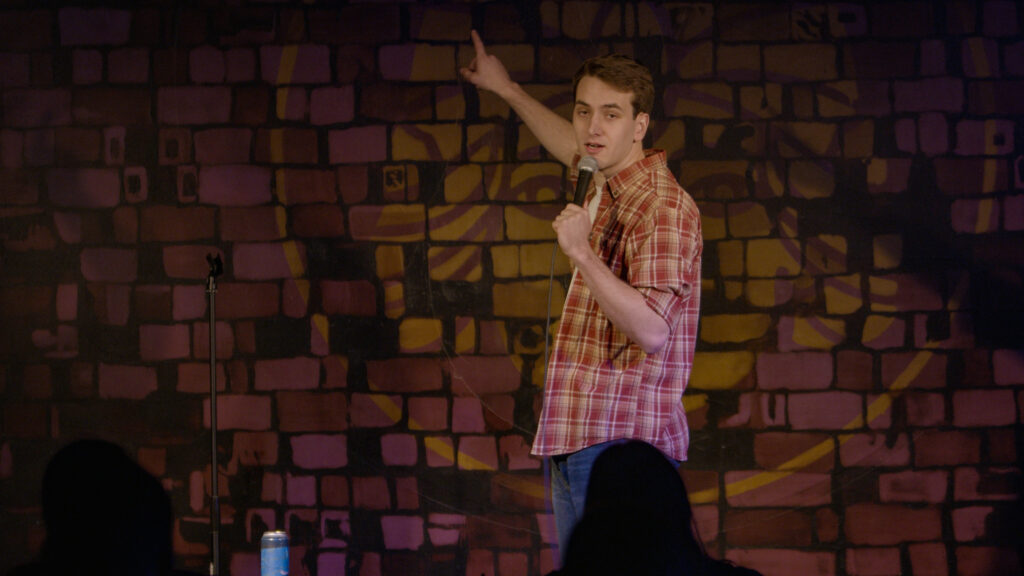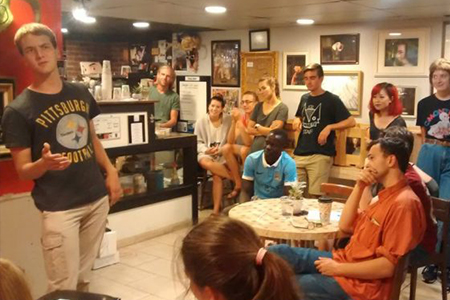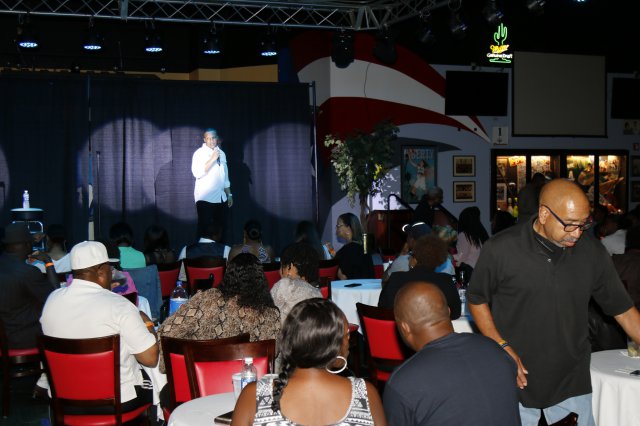should comedians focus
on just "their" crowd?
Is your crowd legit?
If you have been doing stand up comedy long enough to where you feel like you’ve started developing a consistent comedic voice; you likely have started to notice that you do better or worse in front of certain demographics. Now the question up for debate is should you start focusing your time and energy on specifically that one demographic, and try to really appeal to them, or do you want to appeal to as many people as possible. This is a conversation I have had a lot recently with both younger and veteran comedians. In this post, I’m going to break down both approaches and then offer some closing thoughts on the matter.
Comedians with Niche appeal:
If you want to focus on a niche crowd instead of being able to crush in every crowd you need to consider a few things:
- Few Rooms May Book You, But Some May Love You
You will find that certain venues will want nothing to do with you. Especially starting out. When you’re starting out in comedy crowds aren’t going to shows to see you, they’re going to the venue, for the venue’s reputation. If a venue has a certain crowd and you don’t appeal to their crowd, then they won’t book you. However, if your crowd is the same as the venues, then you’ll be a shoe in to host and feature there. You will be a regular and now your challenge is to keep new material coming and soon regulars of the venue will be diehard fans of your act.
- Is Your Crowd Legitimate?
Are you able to sit down and describe your ideal crowd to a booker? You need to be able to give real metrics to define this crowd. For example, I know some comics that play to what I like to call “boomer/bar crowds”. I would describe this kind of crowd as +45, frequents bars, 50/50 college-educated, and go to shows as dates. They are more likely to give comedy cliches a pass. They don’t want thought-provoking or boundary-pushing jokes and just want a quick laugh. This is an example of a crowd that is specific and has specific traits that a comedian can focus in on and create an act around. Now, this begs the question of what is an example of an illegitimate crowd? If you look at your ideal crowd and all you see is your direct friends, family, or current town then you to need to reconsider because that is not a scalable niche. Nobody outside of your city cares about your hot takes on the Mayor.
Likewise, I would argue that if your crowd is other comedians you need to reconsider as well. Some of my favorite comedians fall into this pitfall. Being a “comics comic” is cool if other people are laughing. Some comics crush at open mics talking about other comics and writing meta-jokes (jokes about jokes), but these acts can fail to have success in front of real crowds and it makes them hard to book.
- Is Your Crowd Sustainable
Is your crowd/material a fad?! Could you be stuck in the disco of comedy? It’s hard to tell, but it is a risk you have to take if you’re going to really dive into a certain crowd. Sometimes certain jokes styles and crowds come and go. If a certain political narrative or comedic style changes or falls out of style, will you still be able to keep your crowd

Comedians with Broad appeal:
If you want to focus on as many people as possible instead of focusing in on a certain crowd you need to consider a few things:
- They Like You, But Do They Love You?
At the end of a showcase, of 10 comics, you will probably be the 3rd or 4th best. Rarely 1 or 2. This is the reality of appealing to everyone. Crowds might laugh at your jokes, but you might not be the act that people will want to talk to after shows. One time seeing your material might not be enough for someone to want to be your fan.
- Ol' Reliable
You are playing the consistency game. If you want to have broad appeal then you will also need to be consistent in that 3rd or 4th spot. A niche comic can bomb and people understand that it was, “Just not their crowd”, but if you’re all in on broad appeal you will need to figure out comedy safety nets for an array of crowds. These kinds of universal safety nets and topics can sometimes be put into the category of “hack”, so you’ll need to keep an eye out for avoiding this constant struggle.
- Pack Your Bags
If you’re pretty good at most venues, you will likely get one-off showcase spots or opener spots at a wide array of venues, but you might find consistent work hard. In short, these comics tend to play a lot of different clubs, but for a short time. While you may not be stuck in a fad, you can find yourself a flash in the pan. You will have to write a lot if you are sticking with a broad appeal because venues will want to hear different things from you because chances are your material errors on the side of forgettable. Your voice/perspective will have to carry your act/writing.
- Who Are You? (Who who, who who)
I have seen comics have this dilemma, sometimes in person sometimes though a long post on Facebook. When you are trying to get everyone to like you, sometimes you can get lost in what your act is. You have to be careful because sometimes your act can start to not feel like your voice anymore. Which can take you down the path of being a “hack”.
Final Thoughts on Comedy Crowds
I think it’s important for anyone who is doing stand up comedy to start really considering who their crowd is or whether or not they have one. At some point, you have to start marketing yourself or reaching out to bookers and these are things that they tend to think about. If you can put yourselves in their shoes and have answers to their questions ready, you’ll be better off.
* I’ll write about what is or isn’t hack comedy in the future
More Stand Up Comedy BLogs
Do stand up comedians need to be honest? How important is it that comedians tell the truth on stage, and the role of truth in comedy.
A common question people use to ask me when I told them I do stand up comedy is, “How did you get into that?”. To be honest
Comedians, should you start focusing your time and energy on specifically that one demographic, or do you want to appeal to as many people as possible.


